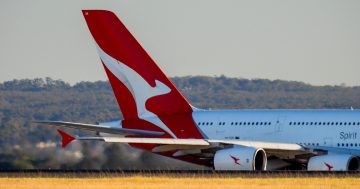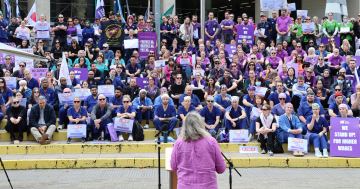GERMANY
 German public sector unions are back at the negotiating table after a series of strikes that caused disruptions at airports, train stations, hospitals and daycare centres.
German public sector unions are back at the negotiating table after a series of strikes that caused disruptions at airports, train stations, hospitals and daycare centres.
Some 150,000 public sector workers took part in hours-long “warning strikes” across Germany, ramping up the pressure in their push for a 6 per cent pay increase, or at least an additional €200 (A$320) a month.
Two previous rounds of talks ended when employers rejected the unions’ demands as too expensive.
Leader of the powerful Verdi union, Frank Bsirske threatened more widespread action if no progress was made in the discussions, but he also expressed optimism a deal could be in sight for Germany’s 2.3 million public sector workers.
“The signals I’m getting now should make it possible to reach an acceptable compromise in the third round of negotiations,” Mr Bsirske said.
The unions said their wage demands are justified given the country’s record €36.6 billion (A$58.3 billion) Budget surplus in 2017 and the economy’s robust health.
Minister for the Interior, Horst Seehofer said he hoped to “quickly reach reasonable results” in the next round of talks.
He agreed that public workers should “share in Germany’s good economic development”, but warned that the wage demands were too high.
The strike action caused travel chaos for hundreds of thousands of commuters as bus, tram and train services were disrupted.
Air travel was snarled too as security workers, firefighters and support staff walked off the job.
Germany’s flagship carrier, Lufthansa alone was forced to cancel 800 flights.
Kindergartens, rubbish collection services and hospitals were also affected.
Berlin, 16 April 2018











